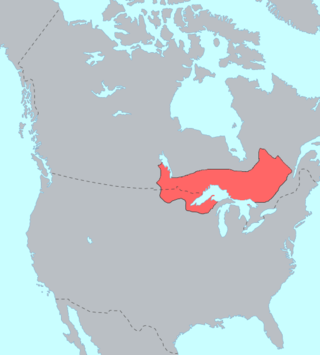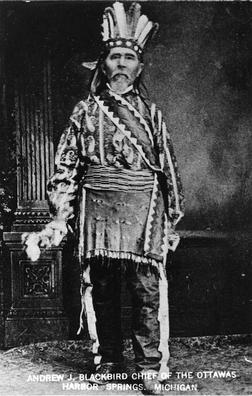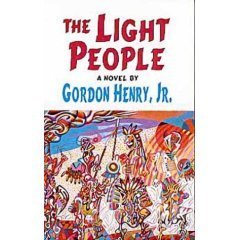Related Research Articles

Karen Louise Erdrich is an American author of novels, poetry, and children's books featuring Native American characters and settings. She is an enrolled member of the Turtle Mountain Band of Chippewa Indians, a federally recognized tribe of Ojibwe people.

The Ojibwe are an Anishinaabe people whose homeland covers the northwestern Great Lakes region and the northern plains, extending into the subarctic and throughout the northeastern woodlands. Ojibweg, being Indigenous peoples of the Northeastern Woodlands and of the subarctic, are known by several names, including Ojibway or Chippewa. As a large ethnic group, several distinct nations also understand themselves to be Ojibwe as well, including the Saulteaux, Nipissings, and Oji-Cree.

Gerald Robert Vizenor is an American writer and scholar, and an enrolled member of the Minnesota Chippewa Tribe, White Earth Reservation. Vizenor also taught for many years at the University of California, Berkeley, where he was Director of Native American Studies. With more than 30 books published, Vizenor is Professor Emeritus at the University of California, Berkeley, and Professor of American Studies at the University of New Mexico.

Ojibwe, also known as Ojibwa, Ojibway, Otchipwe, Ojibwemowin, or Anishinaabemowin, is an indigenous language of North America of the Algonquian language family. The language is characterized by a series of dialects that have local names and frequently local writing systems. There is no single dialect that is considered the most prestigious or most prominent, and no standard writing system that covers all dialects.
Michilimackinac is derived from an Ottawa Ojibwe name for present-day Mackinac Island and the region around the Straits of Mackinac between Lake Huron and Lake Michigan. Early settlers of North America applied the term to the entire region along Lakes Huron, Michigan, and Superior. Today it is considered to be mostly within the boundaries of Michigan, in the United States. Michilimackinac was the original name for present day Mackinac Island and Mackinac County.

Don Lee is an American novelist, fiction writer, literary journal editor, and creative writing professor.

Andrew Jackson Blackbird, also known as Makade-binesi, was an Odawa (Ottawa) tribe leader and historian. He was author of the 1887 book, History of the Ottawa and Chippewa Indians of Michigan.

Xaviel Vilareyo y Villamil was an Asturian writer born in Mieres in the Province of Asturias, Spain in 1967. He is associated with the Asturian literary group of the 1990s.

Chief Buffalo was a major Ojibwa leader, born at La Pointe in Lake Superior's Apostle Islands, in what is now northern Wisconsin, USA.
Basil H. Johnston was an Anishinaabe (Ojibwa) and Canadian writer, storyteller, language teacher and scholar.
Chippewa is an Algonquian language spoken from upper Michigan westward to North Dakota in the United States. It represents the southern component of the Ojibwe language.
Roberto G. Fernández is a Cuban American novelist and short story writer. He is noted for his grotesque satires of the Cuban American community, especially in his English-language novels, Raining Backwards and Holy Radishes! In 2001, he was named the Dorothy Lois Breen Hoffman Professor of Modern Languages and Linguistics at Florida State University.
Dan Gerber is an American poet.
Juan Andrés Morales Milohnic is a Chilean poet and writer. He has a PhD in literature and is a full professor of the University of Chile, and a member of Academia Chilena de la Lengua. He won the Pablo Neruda National Prize in 2001.
José María Moreno Carrascal is a Spanish poet, translator, and teacher.
Noël Ritter Valis is a writer, scholar and translator. She is a Professor of Spanish at Yale University.

The Light People is a 1994 novel written by Gordon Henry. The book won the American Book Award in 1995. The Light People is a work of Native American fiction, composed of many distinct but ultimately interconnected stories happening in and around an Ojibwe village in northern Minnesota, and the Twin Cities.
A. LaVonne Brown Ruoff is an American writer and academic, known for her work collecting and analyzing literature of Native American writers. She was instrumental in establishing the academic discipline of Native American literature. Ruoff wrote what UT Arlington professor Kenneth Roemer called the '"bible" of the field, her 1990 volume American Indian Literatures, which surveys oral and written literatures. Chippewa author and UC Berkeley professor Gerald Vizenor has commented about Ruoff's work, "She has done more for Native American literature than anyone in history... She's done it with determination and brilliance.".
Mariano Siskind is an Argentine writer, scholar and poet. He is currently Professor of Romance Languages and Literatures and of Comparative Literature at Harvard University in Cambridge, Massachusetts.
References
- ↑ "Gordon Henry | Poetry Foundation". Poetry Foundation. Retrieved 2019-04-11.
- ↑ "Michigan Writers Series". Michigan State University Libraries. Archived from the original on 2019-07-31. Retrieved 2012-07-15.
- ↑ Ojibwa (North American Indians Today), Mason Crest Publishers (December 2003),